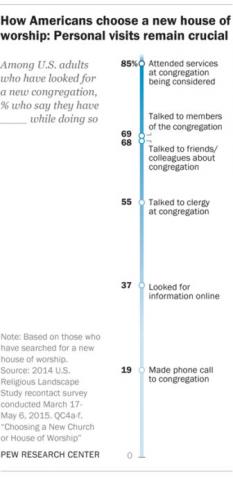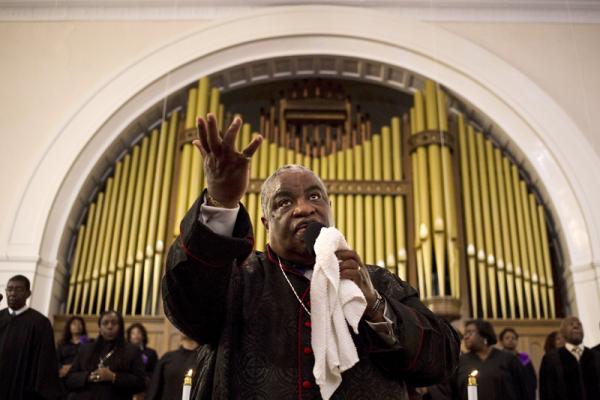Top-notch preaching most attracts people looking for a new place to pray.
That’s the conclusion of a new Pew Research Center study, released Aug. 23, which asked 5,000 people about their search for a new church or other house of worship.
“This is what people value in a congregation — a good message, a good homily that resonates with them and gives them guidance,” said Greg Smith, Pew’s associate director for religion research.
More than 4 in 5 people (83 percent) put preaching at the top of their checklist. Preaching was followed by clergy and lay leaders who make them feel welcome (79 percent), and an appealing style of service (74 percent).
And for those pastors, imams, and rabbis who are wondering how a snazzy website factors into potential congregants’ searches, the survey reveals that in-person encounters carry much more weight.
“This may be because some of the factors people say they value the most in choosing a congregation — the quality of sermons, the style of services, and a welcoming leadership — are difficult to assess over the phone or on a website,” the researchers concluded.
Why do people look for a new house of worship?
The most common reason given (34 percent) is because a congregant has moved. Far less frequently did respondents cite a theological reason or dissatisfaction with the house of worship they used to attend, or the clergy who led it.
About half of those searching for a new congregation (48 percent) considered switching denominations. But for two groups in particular — Catholics and members of historically black churches — switching is uncommon, with only a third reporting such a change as a consideration.
thumbrns-pew-church082316a-336x693.jpg

The survey also found that:
- Half of American adults (51 percent) say they attend religious services regularly — at least once or twice a month.
- Seven in 10 people who have looked for a new congregation say finding one was easy, while 27 percent say finding a new house of worship was difficult.
- Of those who attend regularly, nearly half (23 percent of all U.S. adults) say they have always attended religious services at least as regularly as they do now, but slightly more (27 percent) say they now attend religious services more often than they did at some other time in their adult lives.
The overall margin of error for the survey, which was conducted in spring 2015, was plus or minus 2 percentage points.
Got something to say about what you're reading? We value your feedback!
